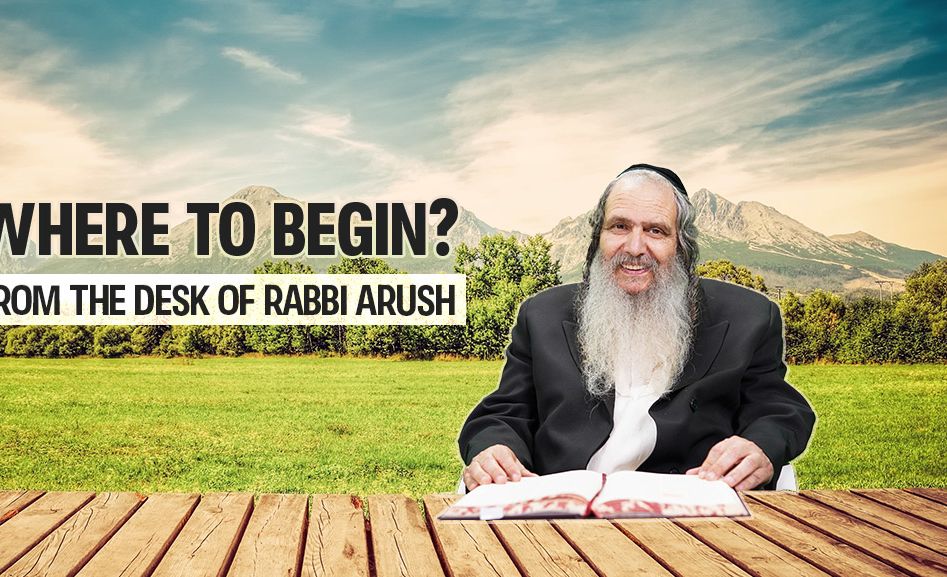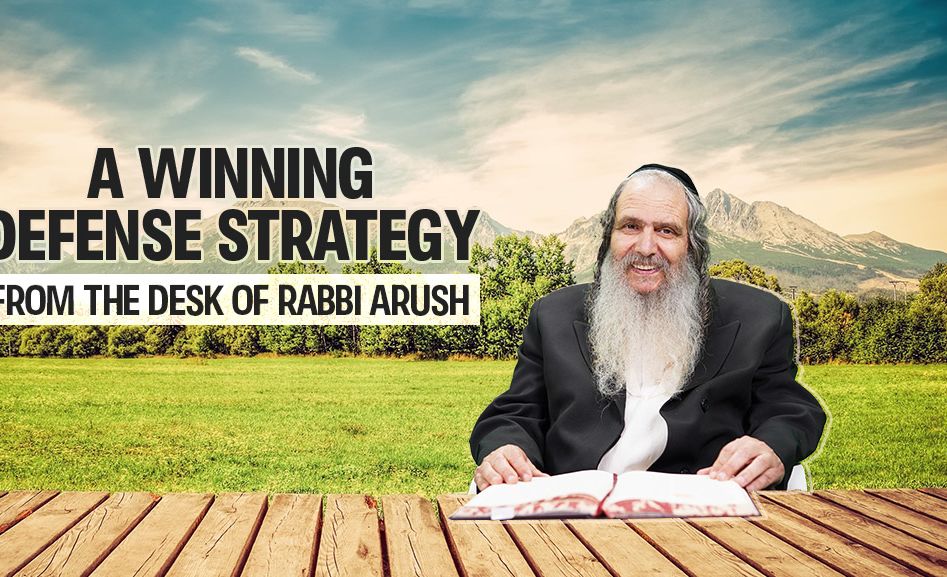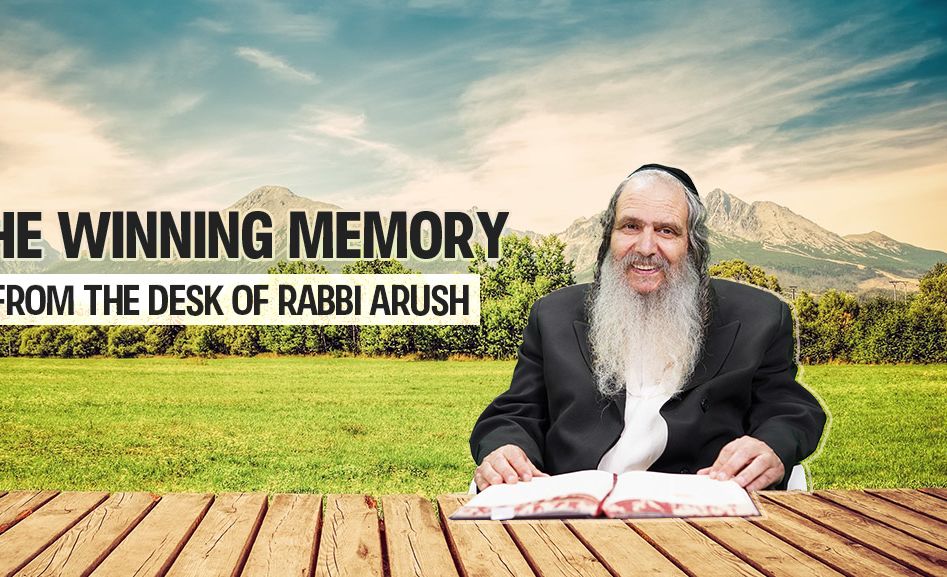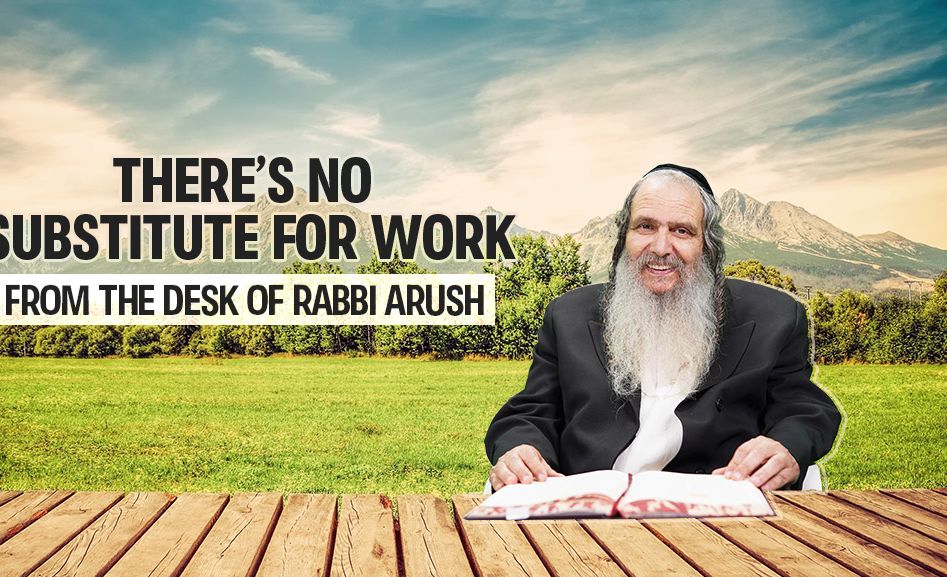
The Greatest Act of Love
What can we do during the month of Elul to better ourselves by removing the negative feelings that we might have toward others?

Ever since I’ve become attached to Breslev Chassidut and Rabbi Shalom Arush’s “Garden” series of books, I’ve looked to find more meaningful actions to take in my life, to do my part in bringing Mashiach. I’ve wondered what I could do to most rectify the sins that helped cause the destruction of our Holy Temple and prevent Mashiach from coming. The Gemara states that the 2nd Holy Temple was destroyed due to the sin of baseless hatred. Many articles have already been written about ways to be kinder to and to love our fellow man such as guarding our tongues better, looking to do acts of kindness for others, etc. The focus of this article is my opinion on the very best way to love our fellow man.
In my spiritual journey, I’ve been blessed by Hashem to also learn more about 12 step fellowships such as Alcoholics Anonymous. In working the steps, one of the things all addicts do is learn to deal with their resentments towards others. There are many ways to deal with resentments towards others, including seeing where one committed their own wrong or asking oneself if the attack was personal, would the offending person have acted that way to anyone else. Usually these methods are good enough to remove 90% of resentments. What about deep-seated resentments? I.e. long-time anger towards a less-than-stellar parent or a friend’s major betrayal. What about a justified resentment? In these cases, AA advises  to pray for the other person. Pray for them what you would like for yourself.
to pray for the other person. Pray for them what you would like for yourself.
A long-time recovering addict named Charlie commented on this: “I think the reason this works so well is that prayer for another human being, prayer for their welfare and their happiness, is probably one of the greatest expressions of love one human being can have for another.”
When I read that, a light bulb clicked on over my head. Reading how Charlie described prayer for another human as an act of love sent me right to the Torah’s words, V’Ahavta L’Reiacha Kamocha – you should love your friend like yourself. Interestingly, the word “Reiacha” which means “your friend,” has the Hebrew root word “Ra” in it which we can translate as “evil”. Now if we switch the word love for pray, one could read the Torah as saying, “And you should pray for your evils like (you pray for) yourself.” (Rebbe Nachman teaches a similar take on this.) Who are one’s “evils”? The people you resent, the people you dislike, the people you are jealous of, the people whose Yiddishkeit you don’t approve of. Anyone who, when you think of them, you get a negative feeling. These are the people you can and should pray for, along with family and friends, and fulfill V’Ahavta L’Reiacha Kamocha, to its utmost.
Doesn’t Rabbi Arush teach that the greatest power we have is our personal prayer? What better way to show love for another Jew, especially one we don’t get along with for whatever reason, than to devote our personal prayer time to pray for his/her/their welfare?
Additionally, if I really want to love others like myself, then not only does what I pray for them have to be what I pray for myself, I also need to dedicate the same time to praying for them as I do praying for myself. If I pray for an hour for my own needs, then I need to pray for an hour for everyone else’s needs.
To that end, starting with today, I have modified my personal prayer to follow (bli neder) this regimen through the month of Elul. Instead of praying for myself for one hour, I have summarized my own prayers to half an hour and I spend the other half praying for as many specific individuals and also groups of people I can think of in the Jewish nation. In keeping with charity practices, I do pray for my family, friends, and clients first, but then I move on to the people whom I struggle to love and accept. The people I may be holding a resentment against, people who have wronged me, people who don’t necessarily follow the Torah like I, people whose lifestyles I don’t approve of, anyone my Evil Inclination has brought into my mind with negative thoughts.
During Elul, I hope with Hashem’s help, bli neder, to pray for much longer than my normal hour and spend as much time praying for the welfare of others. I ask Hashem to give them the things I want for myself: complete emuna and bitachon (trust) in Him, the free gift of Teshuva (progressive change) every day, increased spiritual and material health and abundance, the success of their hands, peace in the home for those who are married, to meet and marry their soul mates those who are single, that all of their children should be righteous and outstanding, that they should merit to make Aliyah and be included in the full redemption of our people, that they should know the sweetness of talking to Hashem for an hour each day, and that they should know and love Him in this world and the next.
Perhaps if we spend our time over the month of Elul practicing the most powerful act of love and pray for others like we do for ourselves, (especially your 6 hour juggernauts!) we will finally cleanse our nation of the sin of baseless hatred, lead to the imminent coming of Mashiach, the in-gathering of all the Jewish people to Israel, the rebuilding of the Holy Temple, and the return of Hashem’s presence in our midst, speedily in our days, Amen!
Editor’s Note: Pinney wrote this article in August, 2016, but it is just as relevant and necessary today! Rabbi Arush is focusing on loving others as oneself and spending 30 minutes in personal prayer to pray that all of us return to Hashem and accept His mitzvot, especially the mitzvot בין אדם לחברם (between people). See Stop the Tragedies!











7/26/2021
I can testify that praying for someone who is very problematic for me actually does change me for the better (as well as help the other person)!
Read about my experience in The Little Neshama that Could.
8/29/2016
thank you
thank you for this inspiring article.
8/29/2016
Thank you for this inspiring article!